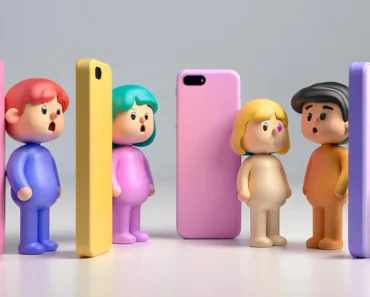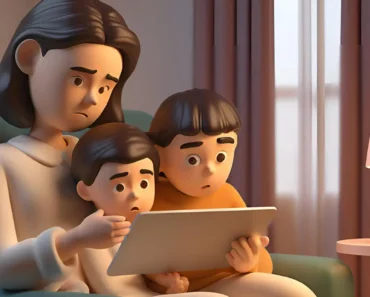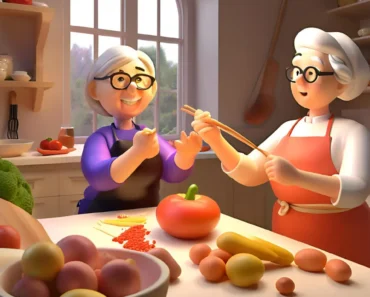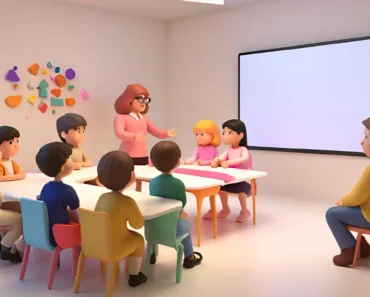The Role of Technology in Modern Parenting
Technology is a cornerstone of parenting in 2025. In the U.S., 70% of parents with kids under 12 use digital tools to manage daily tasks, per a 2024 Pew Research study. From baby monitors with AI analytics to apps tracking homework, Tech Redefines Good Parenting by offering new ways to nurture and guide children.
Smartphones and tablets enable instant communication, with 85% of parents using messaging apps to stay connected with kids, per 2024 data. Educational platforms like Khan Academy, used by 75% of U.S. students, support learning at home. Parental control apps, like Google Family Link, help 65% of parents monitor screen time, ensuring safe digital habits. Wearables, such as smartwatches for kids, provide location tracking for safety. These tools empower parents to stay involved, but their effectiveness depends on thoughtful use, setting the stage for how Tech Redefines Good Parenting.
Benefits of Technology in Parenting
When used wisely, technology offers significant advantages for U.S. parents, enhancing their ability to raise well-rounded kids.
Enhanced Monitoring and Safety
Parental control apps and GPS-enabled wearables keep kids safe. A 2024 survey found 60% of parents use tracking devices, giving peace of mind while kids gain independence.
Access to Education
Apps like Duolingo or BrainPOP, used by 70% of U.S. kids, make learning engaging. Interactive tools boost academic skills, reducing parental stress over homework, per 2024 data.
Improved Communication
Messaging apps and video calls connect families, especially in busy or separated households. A 2023 study noted 80% of parents feel closer to kids through digital communication.
Time Management
Apps like Cozi organize family schedules, with 50% of U.S. parents using digital planners in 2024, streamlining tasks and freeing time for bonding.
These benefits show how Tech Redefines Good Parenting by supporting safety, learning, and connection when integrated thoughtfully.
Read Also: Screen Time vs. Intimacy: Striking the Balance in a Hyperconnected World
Challenges of Tech-Driven Parenting
While technology offers tools, it also presents hurdles that U.S. parents must navigate to parent effectively.
Screen Time Overload
Kids average 7 hours of daily screen time, per 2024 data, raising concerns about focus and sleep. Parents struggle to enforce limits, with 65% reporting conflicts, per a 2024 survey.
Privacy and Safety Risks
Online dangers, like data breaches or inappropriate content, worry 70% of parents, per 2025 studies. Navigating privacy settings challenges less tech-savvy parents.
Parental Over-Reliance
Some parents lean too heavily on tech, with 40% admitting to using apps as babysitters, per 2024 data, reducing face-to-face interaction.
Keeping Up with Trends
Rapidly evolving platforms, like AI tools or social media, overwhelm 50% of parents, per 2024 surveys, making it hard to guide kids’ tech use.
These challenges highlight that Tech Redefines Good Parenting only when parents address potential pitfalls with care.
Read Also: From Boomers to Zoomers: Bridging the Tech Gap
Strategies for Balanced Tech Parenting
– Use Parental Controls: Apps like Qustodio or Net Nanny, used by 60% of parents in 2024, block harmful content and monitor online activity.
– Model Healthy Tech Use: Parents should limit their screen time to 2–3 hours daily, showing kids balanced habits. Put phones away during family time.
– Engage with Educational Apps: Explore apps like ABCmouse with kids, used by 65% of U.S. families, to make learning fun and collaborative.
– Foster Offline Bonding: Schedule tech-free activities, like board games or outdoor play. A 2024 report found 80% of families doing this strengthen relationships.
These steps ensure Tech Redefines Good Parenting by balancing digital tools with real-world connection.
Conclusion: Tech as a Parenting Ally
Building Strong Families with Technology
Tech Redefines Good Parenting in 2025 by empowering U.S. parents with tools for safety, education, and connection. Apps and devices enhance monitoring, learning, and communication, but challenges like screen overload and privacy risks require careful management. By setting limits, using parental controls, modeling healthy habits, and prioritizing offline bonding, parents turn technology into an ally. These strategies help raise confident, engaged kids while strengthening family ties. As technology evolves, U.S. families who embrace these approaches ensure Tech Redefines Good Parenting in ways that foster growth, safety, and connection in a digital world.
External Resources
- Global Tech Awards – Explore cutting-edge parenting tech innovations.
- Forbes Education Trends – Insights on AI in classrooms.
- Deseret News Parenting – Balancing tech and mental health.
Frequently Asked Questions About Tech and Parenting
How does Tech Redefine Good Parenting?
Technology offers tools like parental controls and educational apps, used by 70% of U.S. parents in 2024, to enhance safety, learning, and communication.
What are the benefits of tech for parents?
Tech improves monitoring, education, communication, and time management, with 60% of parents using Cozi, per 2024 data.
What challenges do parents face with tech?
Screen overload, privacy risks, over-reliance, and keeping up with trends challenge 50–70% of U.S. parents, per 2024–2025 studies.
How can parents manage kids’ screen time?
Set 2-hour daily limits, use apps like Qustodio, and encourage offline activities to balance tech use, as practiced by 75% of families in 2024.
Does tech improve family bonding?
Yes, messaging apps and shared app use strengthen ties, with 80% of parents reporting closer connections, per 2023 data.






Thank you for your sharing. I am worried that I lack creative ideas. It is your article that makes me full of hope. Thank you. But, I have a question, can you help me? https://www.binance.com/fr-AF/register?ref=JHQQKNKN
Thank you for your sharing. I am worried that I lack creative ideas. It is your article that makes me full of hope. Thank you. But, I have a question, can you help me?
I don’t think the title of your article matches the content lol. Just kidding, mainly because I had some doubts after reading the article.
Thanks for sharing. I read many of your blog posts, cool, your blog is very good.